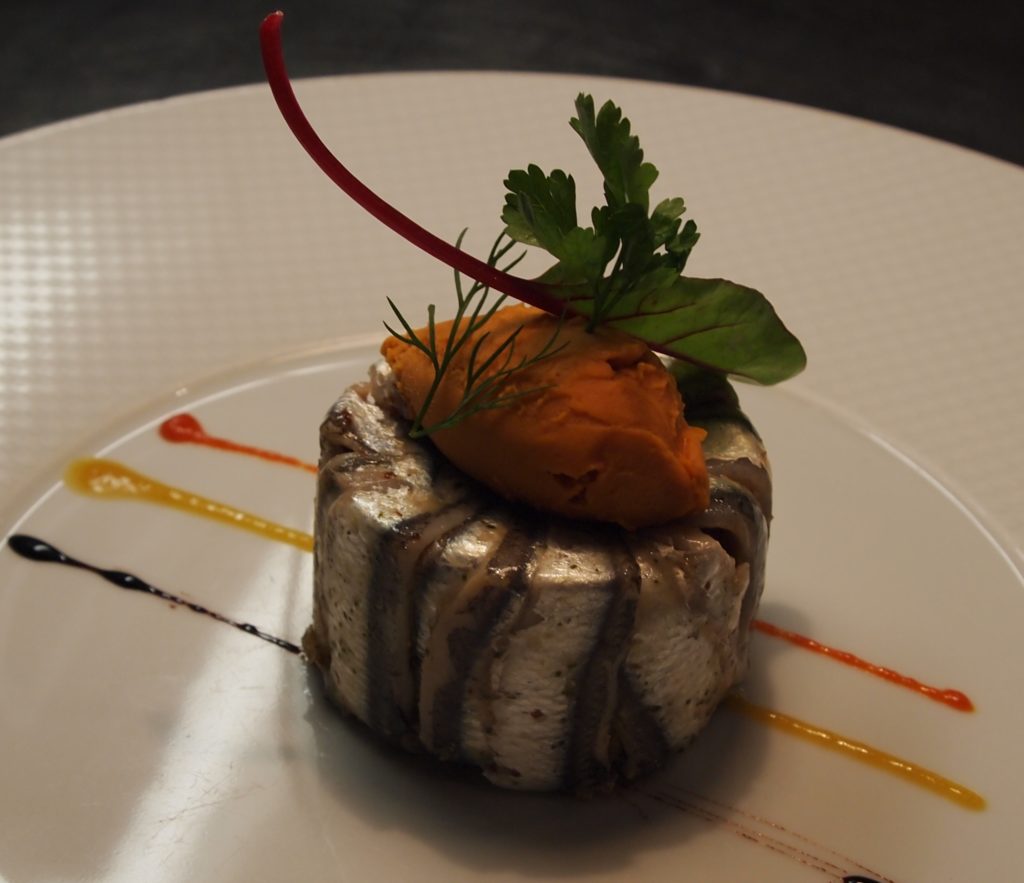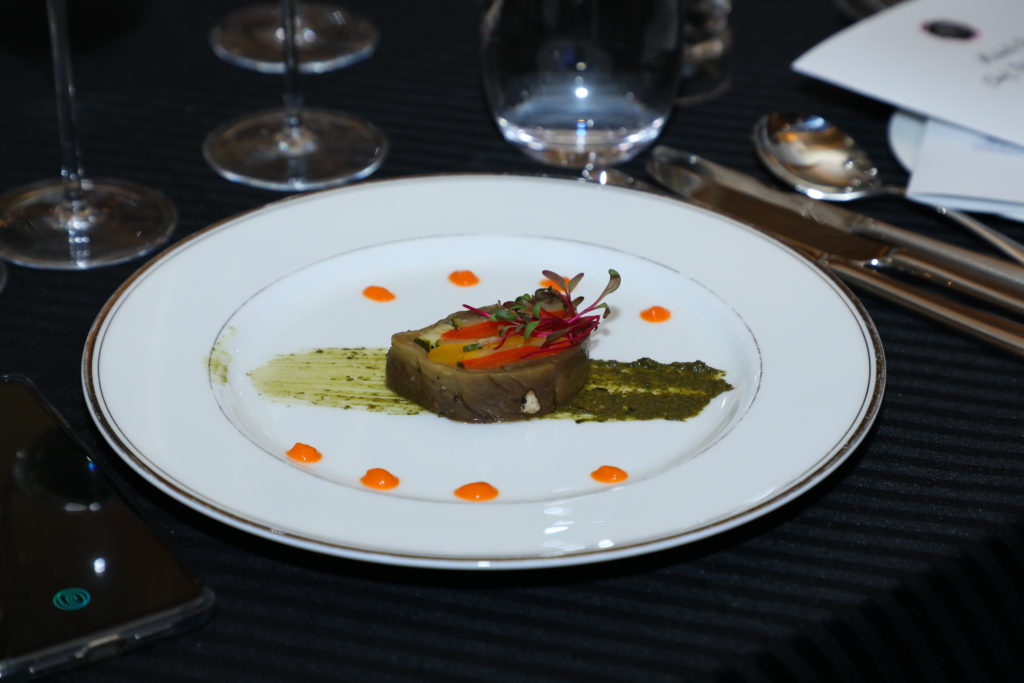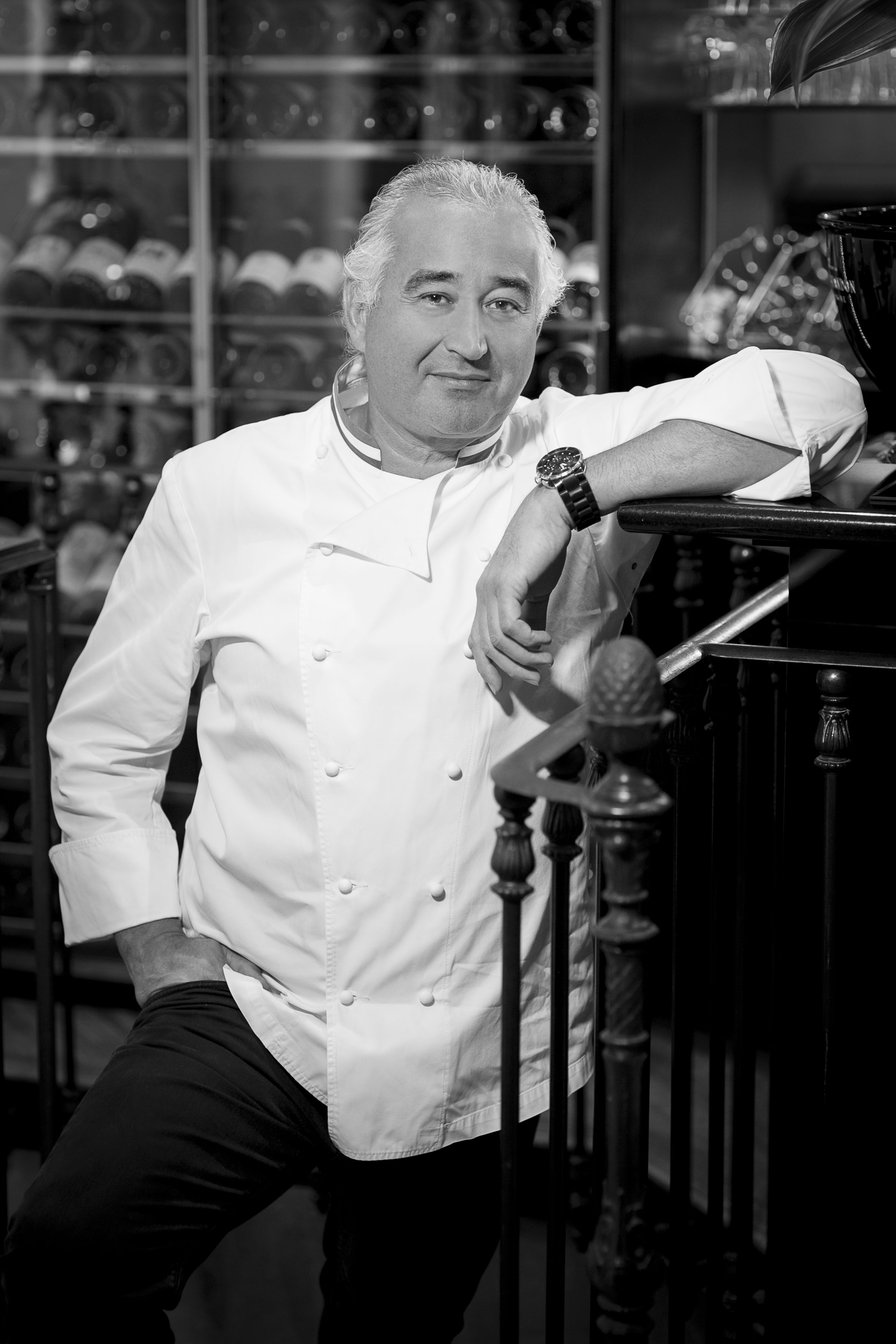Michelin Star Chef Stephane Gaborieau was recently at The Ritz-Carlton, Bangalore to celebrate French Cuisine as part of a two-city tour of India.
The best food is what is sourced locally and is in its pure organic form. A simple mantra for clean eating but one that is often forgotten in the urban chaos of today’s world. In 2004, Chef Stephane Gaborieau won the title ‘Best Chef of France’ and was awarded his first Michelin Star in 2008 for his restaurant Le Pergolese in Paris. For someone who advocates the cause of simple eating, Chef Stephane Gaborieau Gaborieau began his career at the Michelin-starred ‘Dodin Bouffant’ in Paris. He went on to become chef de partie at various prestigious restaurants with great names such as M Menagier (Le Moulin du Maine Brun), George Paccard, Roger Pierre (Hotel du Palais), M Villier (Restaurant La Palm d’Or, Hotel Martinez, Cannes), Francis Chaveau (L’Amandier) and the Majestic. His gastronomical voyage brought him closer to the sophisticated Provençal style of cuisine. He was then promoted to Head Chef in Lyon by the great Chef Pierre Orsi (1 star), then to the hotel Lyon Metropolis and finally during 11 years at Villa Florentine. He tells us more in this exclusive conversation.
Tell us a little bit about yourself and your early days – was cooking something that always interested you?
I was raised by my grandmother in the countryside. My grandfather was a butcher. At a young age they taught us beautiful things of nature. I would go for walks with my grandparents in the woods and they would make me discover everything that surrounded us. They were simple and loved nature and good and local produce. This is what made me want to become a cook.
Any interesting anecdotes from your early years that made you realise this was the career you would be in?
I was lucky enough during my time as an apprentice to come across a Chef who had worked on the cruise liner the France and who would tell me stories about all his travels and stopovers around the world. These stories and experiences made me realise that I wanted to pursue this career.

Tell us about your days at Dodin Bouffant?
This experience was unbelievable for me. When you are done with your experience as an apprentice in a small town in France, it is very important for a cook to travel to the Capital (Paris) to experience the restaurant business there. You get to see and meet the best chefs and work in renowned restaurants. They have a lot of money, lots of produce to choose from and many luxurious ingredients to work with. This was my first experience in such a renowned kitchen and everything was new to me as I was coming from a small town in France.

What were some of the key learnings as a Chef when you worked at George Paccard at Hotel du Palais, Roger Verger at Le Moulin de Mougins and Francis Chaveau at L’Amandier?
These three men were different in their style of cooking and how they approached cooking. Roger Verger was very focused on the business side of owning a restaurant, Francis Chaveau was all about research and creativity and Georges Paccard was interested in presenting local products and the local French cuisine. I learnt a lot from these three experiences, which allowed me to adapt my cooking and learn all aspects of running a restaurant.
Tell us some of the secrets of your Provencal style of French cuisine.
To produce a beautiful Provençale cuisine, you should be able visualise the South of France and Provence with your eyes closed while tasting the dishes. Provençale cuisine requires lots of herbs and fresh vegetables. It is a humble style of cooking and warm. Provence is a beautiful sunny region and that is what you should find on the plate.
You have won many accolades for ‘Twenty-one’ in Tokyo Hilton. Tell us what you did here?
The Hilton Tokyo had asked me to take over their restaurant to bring it to the next level and when the Michelin Guide came out we managed to win 2 Michelin stars. This was 10 years of my life and it was a challenging but rewarding experience. I also had to manage my restaurant in Paris at the same time.
In 2004, you won the title ‘Best Chef of France’ (Meilleur Ouvrier de France). What does this mean to you?
This is a great honour as this means recognition from our Masters; Paul Bocuse, Joel Robuchon, Pierre Orsi to name a few. There are about 100 Chefs in France who have received this honour and about 60 are still cooking. The Best Chef of France title means to advise and convey your know how in the most simple possible way. You are an envoy of France and French cuisine.
What kind of food do you serve at Le Pergolèse, Paris?
We create art deco cuisine, focused on produce, flavours and visual arts. The produce has to be fresh and seasonal, the plate should be inviting and you should be able to recognise each produce/ ingredient with your eyes closed.
What is your opinion on organic and natural food?
We already sounded the alarm bell many years ago. I have been working with local producers, such as fishmongers, butchers, vegetable producers, for a long time. We all agree that we have to learn how to eat differently. Of course it is not only about food. Each person should be aware that a small sustainable or green gesture could make a huge difference, seeing the number of people that live on this planet. This would make us reduce wastage. This is very important to me and I believe we have to go back to eating seasonal and natural to make sure our planet survives.
Tell us something about the special dishes that you make for Christmas?
During Christmas, we prepare many special dishes for the festive season. We work with caviar, oysters, foie gras, gold leaves and chocolate. This time of year is a celebration and the chance to spend time with your family. We want to give our guests the most memorable time.
Today there is a wave of healthy eating and veganism, what is your take on the same?
Eating in a more healthy way is very important and I personally select my ingredients from the market every day to ensure their origin. We as professionals of the food industry are very conscious about this and insist on presenting healthier food to our clients. Veganism is also good but with moderation.
What does the Michelin Star mean to you?
Whether you have Michelin Star or not, a Chef has to always be generous. This is an achievement in a Chefs life but it isn’t everything. You always have to remember to respect people, please your clientele and be honest in your way of cooking. You cannot hide behind subterfuges, you have to be authentic. I think that I have managed to maintain my Michelin Star over the years because I always have the desire to please the clients that enter our restaurant Le Pergolese.
Today food has become a focal point with television shows and blogs. What do you make of this trend?
There should not be too much or too little and these shows should be balanced out. In some of these cooking shows, once it is over some of the Chefs are forgotten. We should not forget that there is a lot of work to become a Chef and it needs over 40 years of experience. Chefs have their ups and downs so we should not only be shown all the positive things. People should be able to separate the good from the bad. We should be careful about selling dreams and not reality. These shows can be very informative but people watching should be able to discern what is true and what is not. These shows showcase wonderful cooks and promote our industry but it is not all about appearances, there is a lot of work involved in becoming a Chef.
What are your future plans?
Apart from Le Pergolese, we have already opened a gastro-pub called ‘La Cuisiniere Lyonnaise’ and we are looking to open more all over France, as well as internationally. Let’s see what the future holds.
Here is a signature recipe by Chef Stephane Gaboriea
Motlen of Sardines Marinated in Spices, Fondue of Basque Peppers, Tomato Sorbet
Ingredients (Serves 4)
- 40 fillets of medium size sardines
Marinade:
- 1 chopped shallot
- 1 lemon juice
- 5cl olive oil
- 1 tablespoon of Dijon mustard
Spices
- 1 tablespoon of chopped dill
- 2 tablespoons of sherry vinegar
- Salt and pepper
Recipe: Mix all these ingredients together and marinate the sardines
Fondue of Basque peppers:
- 1 yellow pepper (or capsicum)
- 1 green pepper (or capsicum)
- 1 red pepper (or capsicum)
- Peel the peppers and cut them lengthwise (nice slices)
- ½ chopped onion
- Salt and pepper
Recipe: Fry the onion and peppers in olive oil until soft. Add a teaspoon of basil puree towards the end. Rest aside once cooked.
Tomato Sorbet:
- 1 litre of tomato coulis
- 1 teaspoon of tabasco
- 80 grams of sugar
Recipe: Mix all ingredients together and churn to make the sorbet
Dressing of the dish:
- Make four hollow cooking circles with a 7cm diameter and 5cm height
- Place the marinated sardines all around the circle
- Add the Basque peppers fondue in the centre and close the dish by using the sardines
- Add a quenelle of tomato sorbet on top of the dish and decorate using an arugula leaf, dill and a few drops of olive oil around the molten of sardines
This story first appeared in Smartlife Magazine’s Dec 2019 issue here:
